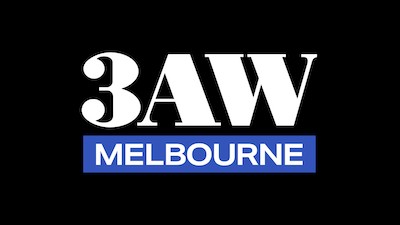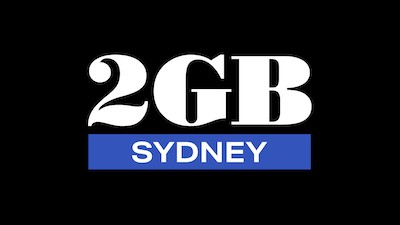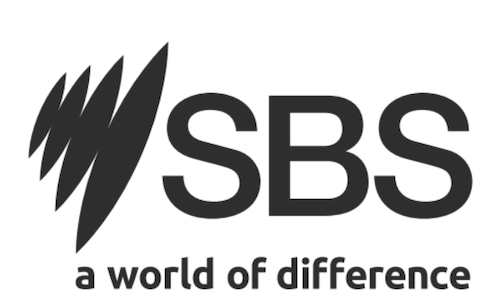The anxiety I experienced was debilitating: Systemic issues at Nine Entertainment

Nine Entertainment has released an independent review of its workplace practices and culture, which found that Nine has a systemic issue with abuse of power and authority; bullying, discrimination and harassment; and sexual harassment.
The systemic issues were caused by “a lack of leadership accountability; power imbalances; gender inequality and a lack of diversity; and significant distrust in leaders at all levels of the business,” according to the review.
The review, conducted by Intersection, involved a company-wide survey and interviews held with members of the TV News & Current Affairs department.
The overall finding were:
- more than half had experienced or witnessed abuse of power or authority (52%)
- nearly half had experienced bullying, discrimination or harassment (49%)
- nearly a quarter had experienced sexual harassment (24%).
Nine operated as a television business for many years, then acquired print and radio companies and expanded into digital publishing and OTT video. Organisations that operate as different businesses in different locations “often have sub-cultures that develop due to the nature of work, the physical environment, and differences in leadership,” says the report.
Overall, the Review found “concerning levels of inappropriate workplace behaviours at Nine… which vary by Division.”
One employee quoted in the report said:
“The anxiety I experienced before [each workday] was debilitating. He would humiliate me in front of everyone else on the team.”
Abuse of Power
The Review found very high prevalence rates of abuse of power or authority (62%) in the Broadcast Division… which “paint a picture of an organisation where accountability is lacking, where decisions in the workplace are made based on personal gain or preference, and where an individual’s role or status can be used to bully, harass or to ‘punch down’.”
The review found that such practices have “created an ecosystem of inequity, where poor performers are not dealt with in real time, if at all; where high performers carry a more significant workload as a result; and where those not perceived to be ‘in favour’ of leadership are allocated undesirable tasks, shifts or working conditions and denied opportunities for career advancement.”
Bullying
More than half of all employees in the Broadcast Division (57%) also reported experiencing bullying, discrimination or harassment. Experiences of public humiliation, ‘white-anting’, belittling comments or conduct, and aggressive or intimidating behaviour were found to be commonplace and normalised. These behaviours are perpetrated by leaders and peers alike and are often not addressed.
Sexual Harassment
The prevalence of sexual harassment in the Broadcast Division is well below the very high industry prevalence rate (64%) and just under the national average across all industries (33%). Nevertheless, nearly a third of Broadcast employees (30%) reported experiencing sexual harassment, with sexually suggestive comments
or jokes and intrusive questions about appearance or private life. Women reported experiencing all forms of inappropriate workplace behaviours at greater rates than men.
Known perpetrators of inappropriate workplace behaviours have not been dealt with; rather employees have been warned about interactions with certain individuals, or told to avoid contact with them. In other instances, leaders have attempted to ‘cover up’ inappropriate workplace behaviours, or to discourage the reporting of incidents.
Despite the concerning levels of inappropriate workplace behaviours, employees who participated in the Review indicated that they also held positive views about the level of respect demonstrated within the workplace. Some employees spoke of isolated examples of good leadership, a strong culture of peer-to-peer support, and a dedication to the role they play in keeping the community informed about the news despite the challenges of workplace culture.
One employee quoted in the report said:
“There have been huge changes for the better in the last 2 years, with changes of management in my department, these are all good, and a huge improvement. It’s with these changes you realise how toxic our department was…”
The report uses the term ‘Broadcast’ to mean Television. It also examined other divisions, identified as: Radio, Publishing (newspapers), Stan, Digital, Sales and Corporate.
The least bad divisions were Sales and Corporate, while the worst were Radio and Television.
According to the report, “experience across divisions varied. However, the data clearly shows that inappropriate workplace behaviours are most prevalent in the Broadcast, Radio and Stan divisions.”
“The survey results indicate that both Radio and Stan have similar workplace culture issues to the Broadcast division. These three divisions have similar prevalence rates for all forms of inappropriate workplace behaviours measured in the survey, and employee experiences indicate a lack of leadership action and accountability as a common driver of inappropriate workplace behaviours across the divisions,” says the report.
In contrast, employees from the Publishing, Digital, Sales and Corporate Divisions were generally more likely to share positive experiences of workplace culture and leadership.
Broadcast (Television) has the largest number of employees (35%), while Radio (7%) and Stan (6%) have the least number of employees in their divisions.
Employees quoted in the report said:
There is no point reporting issues – as the management is not interested – people, especially hard workers, are not recognised – bullies thrive and are rewarded.
We used to talk about being bullied, harassed or publicly humiliated like you’d talk about the weather. Now when I look back it horrifies me how normalised it had become.
I have been on ice [by my manager] for speaking up about a story. Everyone calls it “Punishment Island”. When I was younger I would be in tears about something like this. I have now become disengaged. I am exhausted by the games.
The manager has arbitrarily appointed people to jobs that should have been advertised, with no opportunity for other team members to apply.
It’s a cowboy operation. Managers are ex journos. They don’t know how to manage people, and they get no training.
The day after it [the inappropriate workplace behaviour] happened, [individual] came up to me to talk about it. I thought she wanted to see if I was ok or if I wanted to do anything about it, but no. She was there to make sure that I didn’t say anything, that I didn’t complain. She made it very clear that it would not be in my best interests to make an issue out of it.
Nine Chair Catherine West said:
“Today is an incredibly difficult day for Nine as we confront these findings and reflect on serious cultural issues as an organisation. The behaviour outlined in the report is unacceptable. Abuse of power, bullying, sexual harassment and inappropriate conduct is not okay. This behaviour has no place at Nine.
“We acknowledge that too many of our past and present employees have been harmed by poor workplace culture, the prevalence of inappropriate workplace behaviours, and an inadequate response in the past from Nine to those behaviours.
“To any individual who has experienced inappropriate conduct that does not meet the values of Nine, we are deeply sorry. On behalf of the Board, I unreservedly apologise.”
Nine Acting Chief Executive Officer Matt Stanton said:
“The Intersection report makes for hard reading for the many people who love working for Nine and all that we stand for. It was personally distressing for me to read these stories from our people. The behaviour experienced by many of our people right across the business is not acceptable in any workplace and falls well below what our people should expect in the work environment.
“While it is important that today all of us at Nine take a moment to reflect, we also move forward with a resolve to do better. We have a responsibility to our people to create a safe and respectful work environment to ensure they can perform at their best. Our people deserve nothing less.”
The report has made 22 recommendations, prioritised into foundational, intermediate and advanced changes required for the reset of culture at Nine. The Nine Board says it is committed to implementing all 22 recommendations.
The full report and the 22 recommendations are available here






